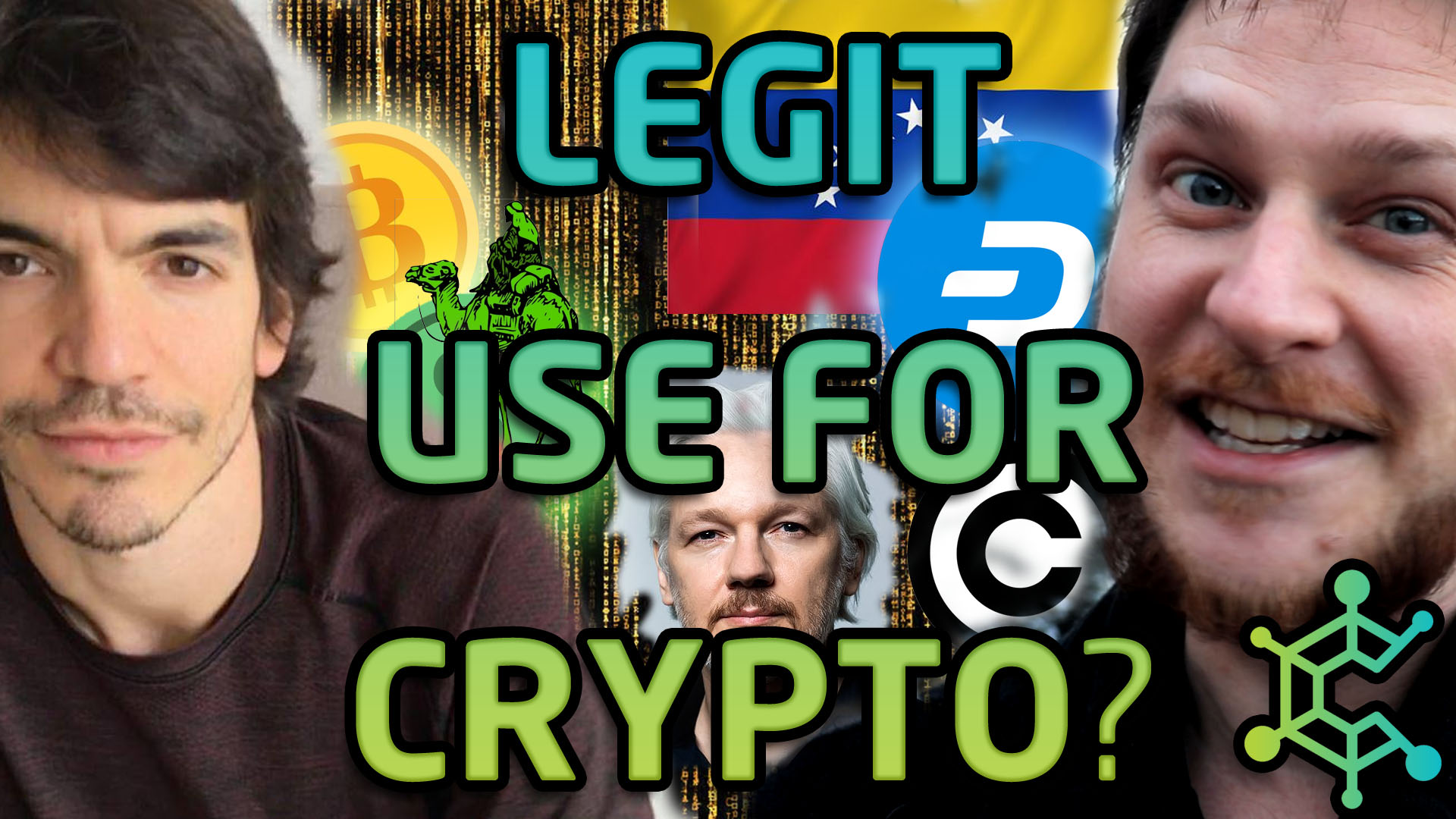
Bitcoin and cryptocurrency still carry a stigma, promoted by Big Media, that their only uses are funding terrorism and buying drugs on the Dark Net. After the last bubble crashed in 2018, many people are even under the impression that the entirety of the technology is a pyramid scheme or otherwise a fraud. In fact, there are many legal uses for crypto, some of which are already current, and many which will be revealed in coming years.
Some examples include: a store of value, monetary sovereignty, tracking a supply chain, online or brick and mortar commerce, sending money to politically unpopular causes such as Wikileaks, proving copyright claims, and the sale of digital assets to represent shares in a company.
Scroll down to watch and listen to this episode of Cryptonomics!
A store of value
Part of the reason Bitcoin was invented was to create a currency with a controlled supply – a supply known in advance, unable to be manipulated by central bankers. The more the supply of a currency is increased, the more likely it will be worth less. For example, a US dollar today compared to a dollar in 1919, is worth about $0.07.
Bitcoin’s emission schedule is much clearer than the dollar’s, and with its demand going up, it has been the best investment in the world over the last ten years. Of course, Bitcoin is still very volatile, so it’s not really the best store of value.
Monetary sovereignty
When you secure your cryptocurrency well, it’s very difficult for anyone to take it from you. With a bank account, the bank can freeze it or the government can freeze it. It is very difficult to freeze a bitcoin wallet, and in many cases it’s impossible to even tell if someone owns any bitcoin. You can accept most of the responsibility for your own money, and with it comes freedom.
Use in commerce
Of course one of the reasons so many people have heard of cryptocurrency, is that it’s used in Dark Net markets, to purchase illicit goods. But people do use it to make more mundane purchases. Overstock.com is one large retailer that accepts Bitcoin.
Venezuela is one of the countries that uses cryptocurrency the most, with people looking for options other than the bolívar, which is worth 1/100,000th what it was just a few years ago. DiscoverDash.com shows listings of over 2,500 businesses in Venezuela, and Venezuelans can purchase goods varying from bread to real estate.
The saviour of Wikileaks
In 2011, payments to Wikileaks had been blocked. Wikileaks had released thousands of confidential documents relating to the US government, and the state had responded by putting pressure on Visa, MasterCard and PayPal to stop processing payments. Wikileaks looked at their choices and decided the only way out was the accept bitcoin. It worked.
That event will likely go down in history as the day when people realised that governments did not have the ultimate say when it comes to political causes. People can now use their money as they see fit – another case of monetary sovereignty.
Proving copyright claims
In year’s gone by, it was common for artists to use a method called “poor man’s copyright”. Legally, copy rights are created as soon as you put pen to paper, but proving the same in a court of law is a different question. So people would mail their own manuscripts to themselves, and store them away. The stamp from the postmaster general was a witness to when the work was created, and in case of a dispute, the letter could be opened before the court.
These days we have the blockchain to prove ownership. If someone wants to keep their work secret, they can create a cryptographic “hash” of a document. The hash is a kind of code that matches up to the document. It’s easy to get the hash if you have the document, but it’s very difficult to get the document if you only have the hash, so if you have both, and the hash was published on a blockchain, it proves that you had access to the document on the date the hash was published.
Of course, if you don’t mind releasing the document publically, you can just publish the whole thing on Steemit.
Digital assets
Thank you
Thank you for listening. Remember to subscribe on YouTube, press like on Facebook, share this episode and stay grateful!
You can listen and subscribe on Anchor and other podcasting services here:
Cryptonomics – Legit uses of Cryptocurrency? With Chris Guida
